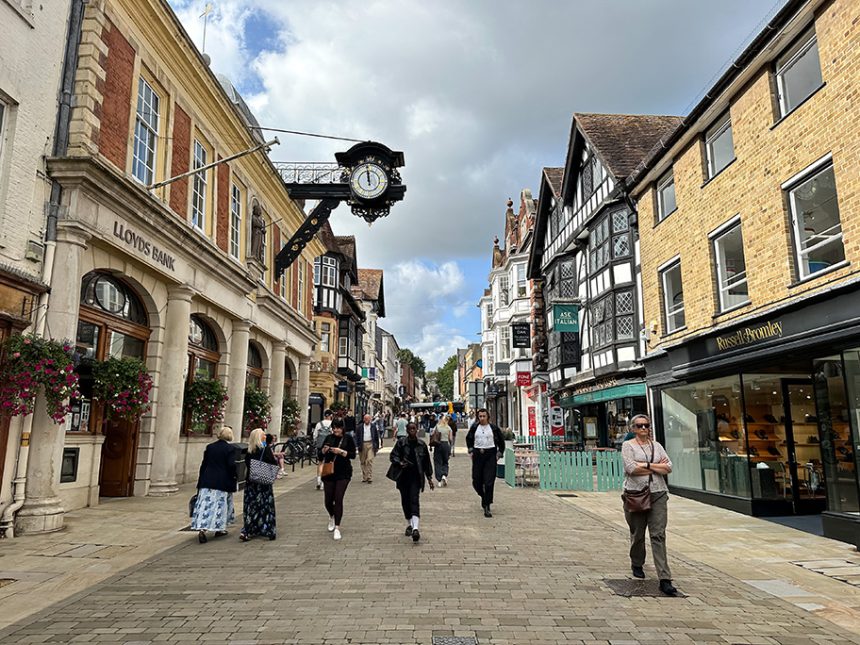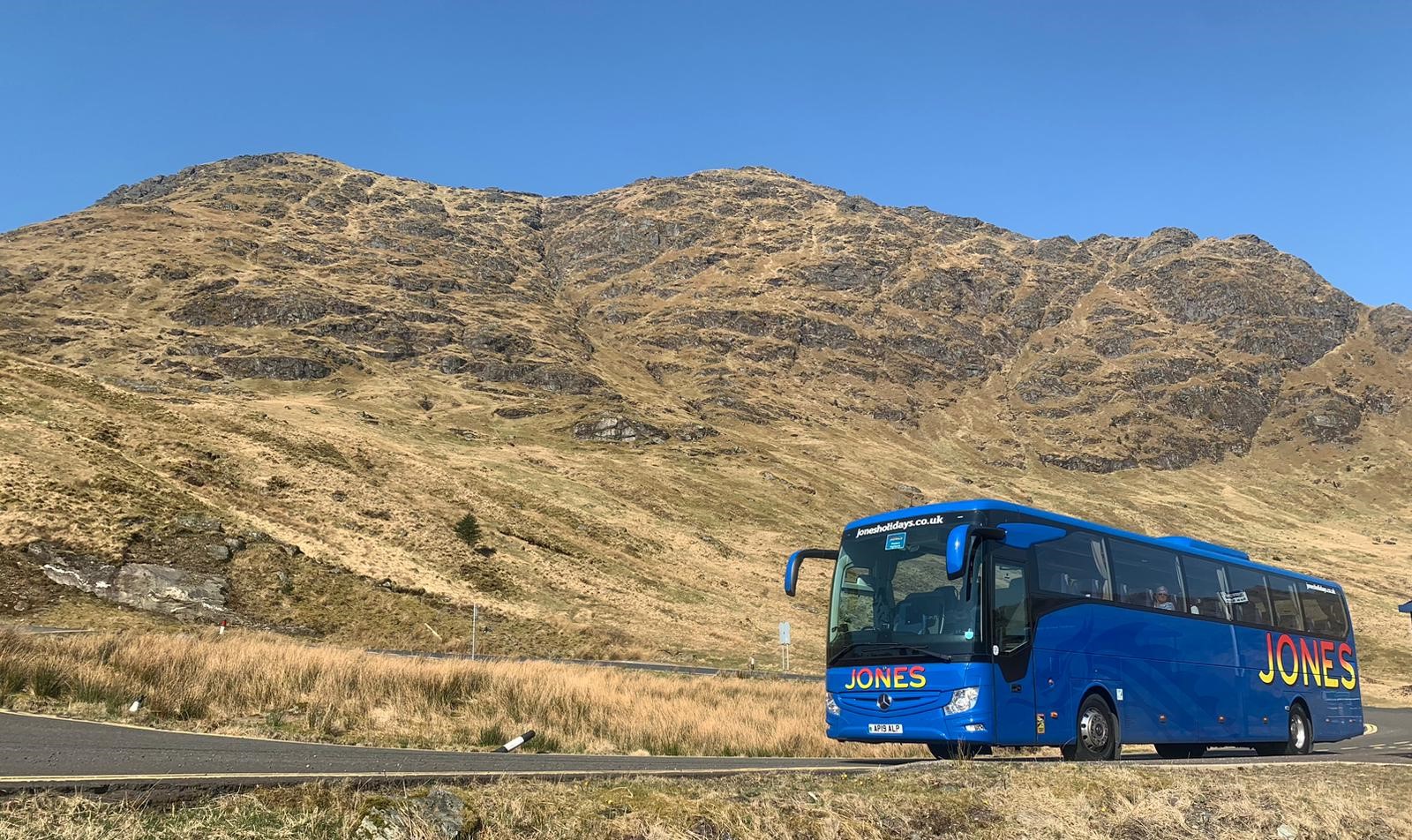Making the high street travel shop work in 2023 is about understanding the needs of your business and audience
Travel shops were once at the heart of holiday planning, but have experienced varying fortunes in more recent years. For some coach operators, brick-and-mortar travel shops have been cast aside in favour of apps and user-friendly websites. For others, they remain indispensable as a face for human connection.
The relevance of a high street presence today is not one size fits all. routeone learns from a variety of coach tourism operators that the industry’s relationship with the travel shop depends not just on the type of business being run, but on the audience it is selling to.
Still a way to expand reach?
Jones Holidays, part of Alpine Travel, just relocated its Flint travel shop to a new address on Church Street, as part of an “evolution” of its brand, and of meeting the needs of modern customers.
The Jones business was acquired by Alpine in 2017. At that time it had a small office travel shop on a petrol station forecourt in Flint. That property was rented from Alan Jones, and latterly his widow. In 2020, Alpine – based further west in Llandudno – recognised a need for more admin space, so decided to open its own high street shop in 2020, to increase Jones Holidays’ and Alpine’s visibility in Llandudno and Flint.
It has since seen patronage across the North Wales belt steadily increase. Alpine Travel Managing Director Chris Owens says it also helped Jones Holidays broaden its customer base from being a largely Flint, Cheshire and Wirral concern. “By having a shop here, we increased reach into this area, and we’ve seen a steady increase in footfall,” he says. “And my view is we have to employ those staff anyway – they have to be situated somewhere, so why hide them in an office out back, when they can be on display, providing a place where people can come and connect?”
What Chris says has been a surprise, even post-pandemic, has been the number of customers that still want to pay with cash. “Even though online bookings increased threefold during the pandemic, it’s still very low,” he says. But that comes down to the nature of the product. “Our demographic, our sales, are not transactional. They’re an emotional sale – people travel with Jones Holidays because it’s a brand that they recognise and it’s a company they like. Our average couple travel with us 3.8 times a year.”
And holiday sales are still strong, running at 34% up from 2019 – Alpine’s best year. For that reason, removing a travel shop would constitute an unnecessary risk to the customer experience, according to Chris. That attitude comes from harsh lessons learned when Alpine acquired Silver Star in 2014. “We’ve never changed Jones Holidays to Alpine,” he says. “Our customers know Jones is owned by Alpine, but we would never change the brand. People are incredibly brand loyal, and when you’ve got a good brand, whatever you do, don’t damage it.”
Downsize for Acklams
Acklams had three travel shops pre-pandemic, in Beverley, York and Hull. The Beverley and Hull branches remain open, but York has not been reopened. Director Alan Acklam cites heightened cost awareness, and a streamlining in how the business operates its day trips and tours programme.
Acklams’ travel shops in Beverley and Hull offer day trips, concerts, cheaper holidays and door-to-door ‘Elite’ holidays. York offered the latter, but day trips and concerts would mean sending a coach for shuttle work.
Concurrently, Acklams has increased the travel agency side of its business. “We’re into 100 plus travel agents now, so they do a lot of selling for us as well,” says Alan. “Through COVID-19 that has supported us, rather than opening shops.
“York is not really our operating base. We pick up for holidays from York but don’t do anything else. It’s difficult to evaluate anything now. Over a period of time you build things up year after year and you see figures changing and areas increase, but these days, the work came back too quickly for that.”
While customers are still heading online to do business, Alan says there’s still strong demand for brochures and for face-to-face bookings. “I don’t think we’ll ever get to the point of having no shop,” he adds. “People do like the face-to-face, certainly at present.”
 Going without: Harry Shaw
Going without: Harry Shaw
Some operators, nevertheless, have taken the step to make their business work without brick-and-mortar travel shops.
One example is Harry Shaw. It forewent travel shops some 20 years ago after building a chain of travel agencies that acted as standalone businesses. The decision was made when the world wide web gained momentum at the turn of the century, and buying habits began to change. For Director Robert Shaw (pictured, left), the writing at that point was on the wall.
Travel agents were the only way customers could make reservations, as the technology wasn’t there yet,” he explains, giving the reason for the decision to sell early. “They were a great way for a tour operator to establish market share. The shops had good value and we were able to exit the market.”
Robert says it is interesting that such a dynamic has somewhat changed now, allowing coach tour operators to open shops primarily to sell their own products. “But it was important for us to embrace technology,” he admits. “The speed of change, in hindsight, made it the correct decision. Travel shops do have their benefits: You can talk to the consumer, build relationships, and it makes taking payments easier, and gives access to the key demographic – older members of the community. It has a lot of benefits to the coach holiday industry.”
But with those benefits come challenges, such as onerous leases. But Robert says customers were swayed by more attractive pricing by a reduction in overheads. Regional and national newspaper advertising – an effective route 25 years ago – diminished as circulation declined, and social media and e-marketing became the focus.
But the concept of combining a retail outlet with office administration – as Alpine has done – works well in combining overheads. “There is a significant case for that,” says Robert.
Every business is different, and Harry Shaw has no regrets about its decision. “It does suit some people [to run shops], whereas it suits our business to operate the way we do. More and more people are getting used to talking to us over telephone or social media. It’s a learning curve for everybody – but it is the way that industry and businesses have tended to move.”























 Going without: Harry Shaw
Going without: Harry Shaw




